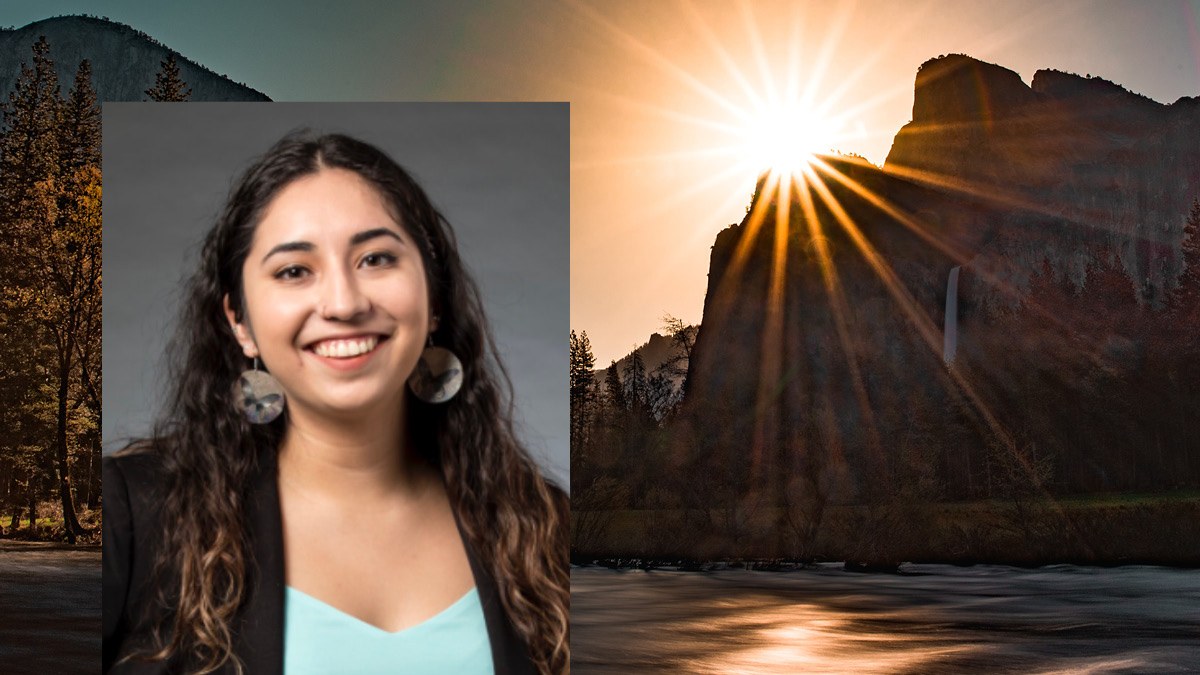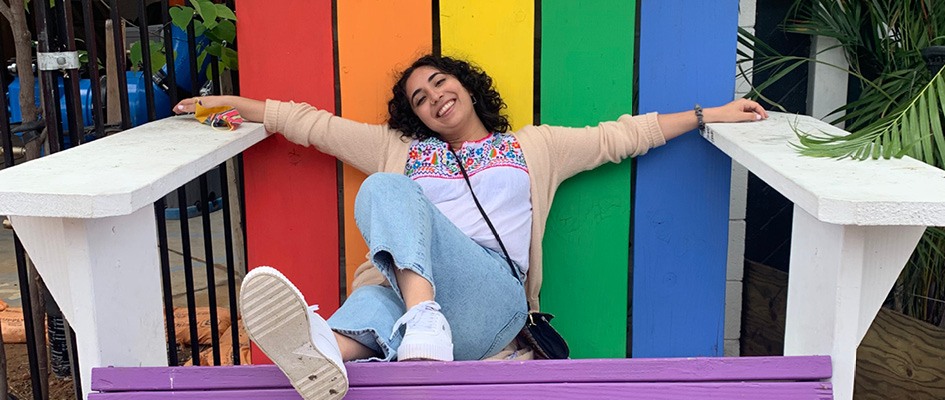Moss Adams Voices
Yesenia Velasquez: Found Family
Yesenia shares her coming out experiences while exploring intersectionality and allyship during this month’s LGBTQ+ Pride Month celebration.

Yesenia (she/they), tax senior in Seattle, has worked with Moss Adams since February 2022. She’s involved with the firm’s Pride business resource group (BRG) to help Moss Adams support its LGBTQ+ team members. Yesenia is queer and started to interrogate her gender and explore her gender expression during the COVID-19 pandemic. During this year’s LGBTQ+ Pride Month celebration, Yesenia talked about intersectionality and allyship—and how both are critical in supporting the LGBTQ+ community at work and beyond.
Why is Pride Month so important to the LGBTQ+ community?
It’s a time to show love and celebrate who we are with our friends and family. As queer people, we had to make our own family to feel comfortable because we don’t always feel safe.
Consider the accounting industry. A lot of terminology in the corporate world includes binary language like “hey guys.” Sometimes, as a queer Mexican woman still understanding her gender, I feel passive or uncomfortable.
Being queer helped me find people in a different space, like the Pride BRG, and when those in my network understand me, it leads to deeper connections. It’s hard to explain the difference I feel when I can show up and express myself as I truly am, even in a business environment. It’s nice to have that love and care in my professional development.
You spoke about the importance of queer people making their own family. Have you had challenges with your family due to your queer identity?
I grew up Catholic in a Mexican household and was brought up to believe that the worst thing I can be is a queer woman. I was a daddy’s girl; I played soccer for my dad and he was really proud of me. After I came out, he shut me out. It was sad to see he lost the shine in his eyes he had for me.
For a while, I disconnected myself from my family. My parents would talk about relationships and dating with my sisters, but that wasn’t discussed with me. My parents only talked to me about my schoolwork or my career. It’s hard to not share the love you have for others with your family.

Did you feel uncomfortable telling your family about your relationships?
Not just uncomfortable; it was challenging. I come from an intersection of the queer identity, which means different identities intersect that can make for unique experiences.
As a first-generation Catholic Mexican, I struggle to express myself to my family in the Spanish language. We have English terminology for explaining yourself as queer, but I only know how to say “gay” or “lesbian” in Spanish. I only know binary pronouns in Spanish. How do I express myself?
It’s created some internalized homophobia that leads me to be uncomfortable with being visibly queer, such as holding my partner’s hand. Internalized homophobia is self-hatred for being queer.
I was fed the belief that being queer is not right, so that internalized homophobia affects our opinion of ourselves for being who we are—it also affects our relationships because we unintentionally impose that hatred onto others we love or care for.
It’s getting better since I started going to therapy; I purposely tell my parents when I’m going on dates with women, and opening up about what I’m feeling has allowed them to be more understanding and start conversations.
Also, seeing better queer representation in the media helps them be more comfortable with those topics. Sometimes I still distance myself based on how they communicate with me, but we’re working on it.
Allies are important to every underrepresented community. What does allyship mean for you, and how can we be better allies to the LGBTQ+ community?
Good allyship is taking time to question yourself and learn from those around you. For example, folks who don’t understand gender identity and expression may not know that suicide rates are higher for those with a different gender expression. There’s also a different experience for LGBTQ+ folks who have disabilities.
There’s a lot happening in the world. There’s anti-LGBTQ+ bills including anti-transgender bills, but there are also Black people dying as a result of police brutality, Latinx folks in cages, and challenges to reproductive rights.
A lot of us are watching our rights being removed, and when you have intersecting identities, you sometimes have to ask which identity you have energy to fight for. Every day feels triggering. Allies should take time to look at what’s happening and understand the trauma we experience because of that, and also teach your kids and loved ones about it.
We need allies to speak up for us, but also check on us to make sure we’re doing alright. We log into work while depressed, and our productivity may reflect that. We need to adapt and support our coworkers in their mental spaces. Understand how these issues may mean we can’t show up and give 100% every single day. Acknowledge when your team members need a break and thank them for showing up. We’ve got to take care of one another.
Go Beyond the Desk
At Moss Adams, we believe in the power of possible to empower our clients and people to pursue success however they define it. Explore stories about our professionals, including their personal achievements, at our Beyond the Desk page.